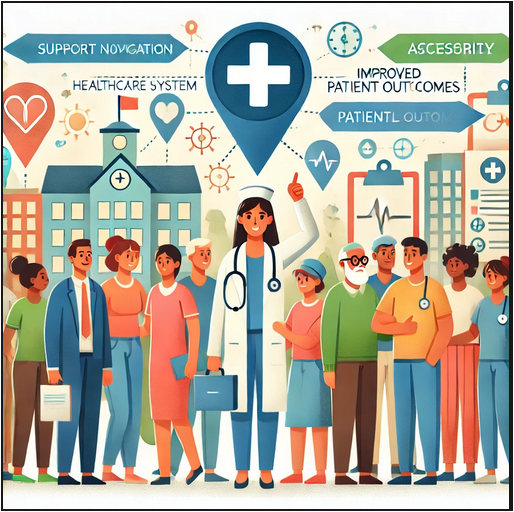DEVELOPMENT
At our organization (LHHW), we take your privacy and data security seriously. We understand how important it is to protect your personal and sensitive information, especially in today's digital world. We use industry-standard encryption, secure servers, and advanced technologies to ensure that your data is kept safe from unauthorized access, loss, or theft. Here’s how we ensure your data remains protected: Encryption: All sensitive data is encrypted during transmission and storage, ensuring that it cannot be read by unauthorized parties. Secure Access: Only authorized personnel have access to your data, and we continuously monitor and restrict access to prevent misuse. Data Anonymization: Whenever possible, we anonymize your data to further minimize risks and enhance privacy. Regular Audits: We perform regular security audits and updates to our systems to keep up with emerging security threats and vulnerabilities. Compliance with Regulations: We adhere to global data protection regulations like GDPR, HIPAA, and others, ensuring your rights to privacy are respected.
EXTERNAL AND INTERNAL DEVELOPMENT
These types of development aim to improve the quality, accessibility, and impact of educational projects and research communication. 1. Curriculum Development Objective: To design, revise, and enhance educational curricula that meet current academic, professional, or societal needs. Focus Areas: Developing new educational programs or updating existing ones to incorporate modern teaching methods, emerging technologies, or global challenges. Aligning curricula with industry standards and best practices in research. Impact: Ensures that educational materials and approaches stay relevant, engaging, and effective for learners. 2. Research Development Objective: To advance the methods and tools used in academic and applied research. Focus Areas: Developing innovative research methodologies or frameworks. Enhancing the ability to collect, analyze, and interpret data to contribute to knowledge in various fields. Funding and supporting research initiatives that lead to new discoveries or solutions. Impact: Supports the growth of knowledge and facilitates the application of research outcomes in practical settings (e.g., in schools, hospitals, or communities). 3. Digital and Technological Development Objective: To incorporate new technologies into educational and research practices, improving accessibility, engagement, and effectiveness. Focus Areas: Integrating e-learning platforms, digital resources, and online collaboration tools into educational systems. Developing or enhancing research communication tools like databases, research management software, and collaborative platforms. Impact: Expands access to education and research opportunities while increasing efficiency and innovation. 4. Communication Development Objective: To enhance how research findings and educational initiatives are communicated to various audiences. Focus Areas: Training researchers and educators in effective communication methods, including writing for academic journals, public speaking, and media outreach. Creating communication strategies to bridge the gap between academic research and the general public, policymakers, or other stakeholders. Developing communication platforms (websites, newsletters, social media) to share research outcomes, educational content, and progress updates. Impact: Ensures that research is understood, adopted, and utilized by a wide range of audiences, from academic peers to the general public. 5. Capacity Building Objective: To enhance the skills, knowledge, and abilities of individuals and institutions involved in educational research and communication. Focus Areas: Organizing workshops, seminars, and training sessions for educators, researchers, and communication professionals to develop key competencies. Strengthening the infrastructure of educational institutions and research bodies through technical assistance and resources. Impact: Builds a stronger foundation for ongoing educational and research advancements by empowering individuals and institutions with the tools and skills they need. 6. Policy Development Objective: To influence and create policies that support effective education and research practices. Focus Areas: Advocating for policies that encourage research funding, access to quality education, and the use of evidence-based approaches. Contributing to the formulation of national or international guidelines on research ethics, educational standards, and communication practices. Impact: Leads to long-term improvements in the structure, accessibility, and quality of education and research systems. 7. Community and Stakeholder Development Objective: To engage and collaborate with community members, stakeholders, and organizations to ensure that educational and research projects address relevant issues. Focus Areas: Developing partnerships between educational institutions, research centers, community groups, and government agencies. Involving local communities in educational research to ensure that initiatives are contextually appropriate and have real-world relevance. Impact: Ensures that educational and research projects are grounded in the needs of the community and lead to meaningful change. 8. Evaluation and Impact Assessment Objective: To assess the effectiveness of educational programs and research projects and determine their long-term impact. Focus Areas: Conducting evaluations of educational methodologies, teaching outcomes, and research findings to ensure that they are achieving their intended goals. Measuring the impact of communication strategies on the reach and understanding of research. Impact: Provides insights that can be used to refine and improve future educational and research initiatives. 9. Inclusion and Accessibility Development Objective: To make education and research more accessible and inclusive for diverse audiences, including people with disabilities, under-served communities, or marginalized groups. Focus Areas: Developing inclusive teaching materials, accessible online content, and technologies that cater to students with disabilities. Promoting diversity and equity in research topics and communication, ensuring that a variety of perspectives are represented. Impact: Creates equitable opportunities for all individuals to participate in and benefit from education and research.







